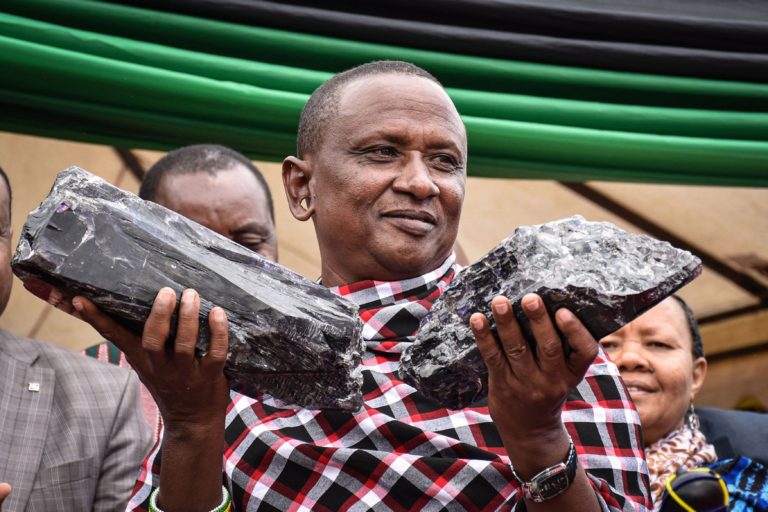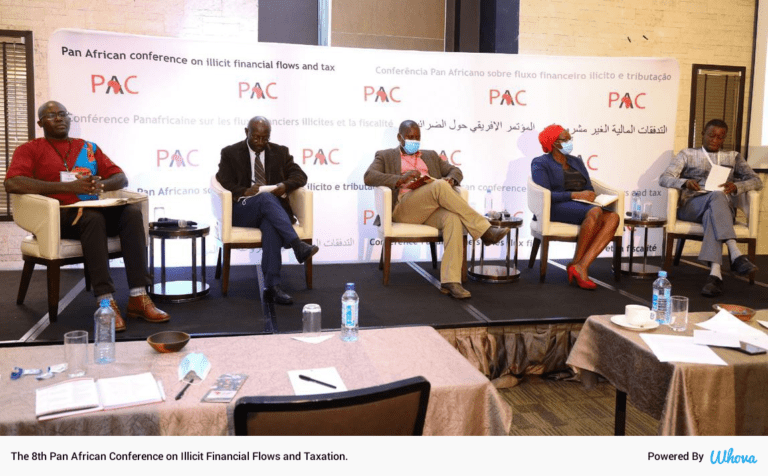Dar es Salaam, Tanzania — As a newly-wed couple who visited Tiffany and Co Store in New York can attest, the finely crafted wedding rings fitted with velvet blue crystals, capture the allure of Tanzanite—one of the world’s most sought-after gemstones 1000 times rarer than diamond.
What is not so obvious to the revelers, though, is that the dazzlingly glittering stone only found in Tanzania is oftentimes a product of smuggling.
Lucrative Business
Despite being a lucrative business, the global Tanzanite trade has not been giving optimal benefits to Tanzania, the only place on earth where the precious stones are found.
Although the east African country is endowed with huge mineral resources notably Tanzanite gemstones, the local industry for cutting had not developed as fast, as a result, a huge amount of precious minerals is shipped by unscrupulous traders to the far East for processing and value addition.
Tanzanite Discovery
Discovered in 1967 by Meru herdsman, Jumanne Ngoma, who stumbled upon glittering crystals while herding cattle on the foot of Mount Kilimanjaro, Tanzanite, prized between $600-$800 per carat, is arguably the best money can buy.

At a dusty township nestled on Mererani Hills in Tanzania’s northern Manyara region—dotted with wooden shacks, artisanal miners scale down squeaking wooden ladders, into shafts and crawl through narrow passages into underground caves to find their luck.
Driven by survival instinct, the diggers, better known as “Wana Apolo” explore every possible means day and night to find their luck, even though they know much of what they get won’t benefit their families.
“I am working here as an employer, there’s no chance at all I will wake up one day to be rich, whatever we get goes to our boss,” said Halfan Hemed, a miner at Mererani.
According to him, much of the resources are being stolen by foreigners.
Plugging The Loopholes
In an effort to curb Tanzanite smuggling, former Tanzania president, John Magufuli, in 2017 ordered the military to build a 24km perimeter wall surrounding Tanzanite mining site in the northern Simanjiro district to control theft of the precious gemstone thus preventing loss of government revenues.
Fitted with surveillance cameras and barbed wires, the 20 feet high wall has reportedly helped in the monitoring of suspicious activities in the mining site thus preventing smuggling of the gems.
Million Dollars Loss
The east African country has repeatedly lost millions of dollars due to Tanzanite smuggling.
The government had thus established new regulations to ensure high security and effective management of mining activities in and around the mining site.
The mustard yellow wall, worth $2.9 million, has only one entrance, which is secured by the army.
Before its construction, officials said about 40 percent of all Tanzanite produced in Tanzania was being smuggled out of the country.
Recent government data show that gemstones worth Tzs 635 (US$288.6 million) were being smuggled out of the country every year through illegal routes and the consignment ended up in Kenya, India, and other destinations in the far east.
For instance, records show that Kenya, was is exporting abroad Tanzanite worth $100 million while India pocketed $300 million worth of Tanzanite sales, surprisingly official export figures in Tanzania before construction of the wall clocked at US $38 million per year.
Parliamentary Enquiry
The move to build the wall followed a parliamentary inquiry in 2017, which revealed massive smuggling of the blue-violet gemstone of which mining operators were the ones reaping the benefits of the country’s tanzanite riches due to corruption and bad contracts.
The government move to control mining activities at the Tanzanite site has helped in assuring buyers especially in the United States that the gemstones are legitimate and all relevant taxes and royalties are being paid.
Officials said the government has created infrastructure for the wholesale gemstone industry in the country where gem cutters, carvers, and jewelers compete with others abroad.
Military Might
Speaking at the burial ceremony of the late Magufuli, Chief of Tanzania Defence Forces, General Venance Mabeyo, said the military has been fully involved in the protection of the country’s minerals wealth especially the construction of the wall.
“We wanted to protect the tanzanite mine, and before doing that we have built the wall surrounding it to prevent smuggling,” Mabeyo said.
Since 2016, the east African country overhauled the legal, regulatory and fiscal framework governing the mining sector ostensibly to seal off loopholes for theft and loss of government revenues.
Dotto Biteko, Minister for minerals said the country has seen an increase in government revenues from sales of Tanzanite and other minerals due to coordinated response such as tightened security at airports and border points through which the gemstones and other precious minerals were being smuggled.
“We are better off, far better off than when the situation was six years ago,” he said,
Magufuli strongly criticized foreign mining companies, accusing them of undervaluing their production of gold, diamonds, and tanzanite, resulting in a loss of billions of dollars in taxes and royalties.
A commission of inquiry set up by Magufuli estimated that $90bn had been lost in tax evasion arising from mining operations since 1998.

















